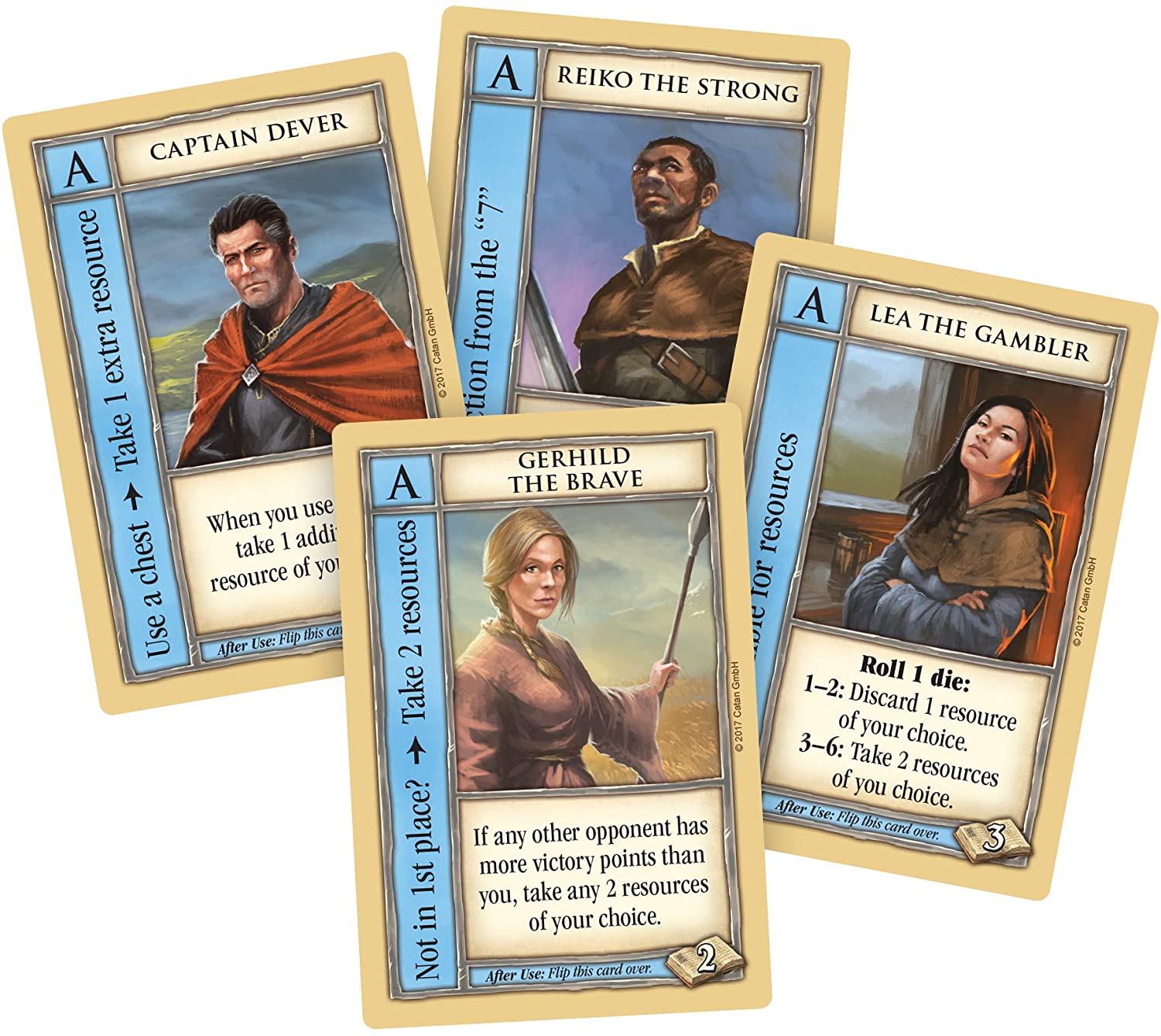
(A more determined house rules writer could try to restrict this behaviour by specifically stating that both parties have to trade a nonzero number of resources whenever a trade takes place. In fact, I don't even see how you could write house rules that forbid this type of shenanigans, short of restricting the communication between players. I have always considered this fair game (with the bribe always being just a promise to pay off, which could be reneged on), just like you can offer a bribe (technically, I guess, a trade of zero resources for some nonzero number of resources) if another player is willing to not build a road in a direction that would impede you.Īs I understand them, the official rules do not forbid this, since all you are doing is just talking to other players and then performing some actions that are legal within the game. *The robber takes a random card from the face-up hand. However, this isn't much worse than the standard variability in the game - some rolls generally help certain players much more than others. The main harm in having bribes is that rolling a 7 is luckier. In a certain sense, it's a hybrid between a Year of Plenty and a VP card (as it chases Largest Army), making it about even with the rest of the deck.
Catan robber plus#
In our games, playing a Knight usually gets you 0-2 crummy spare resource cards and 1-2 Not-Hits, plus 1 random resource card. Monopoly, Road Building, and Year of Plenty all just-about pay for themselves (if not more-so), but without bribes, Knights aren't so great, despite letting you chase Largest Army. My groups play with resource-cards face-up*, which strengthens the robber as you know whom you're going to target, but despite that we find bribes make Development cards much less variable in value. It's important enough to slow down the winner that the robber isn't a credible threat to the losing players. Late-game, it's so valuable to rob the winning player that bribes simply don't happen. We also sometimes perform coerced trades - I agree not to rob you, but you have to trade your valuable brick for my worthless stick. Often players are willing to accept a Not-Hit as a bribe, at least from 1-2 opponents, so fewer real resource cards trade hands than you might expect. Or I might simply offer a Not-Hit for a single use of someone's 3-1 port, which ordinarily isn't worth a whole card. For example, if I'm selling my sheep to someone who has a rock, a wheat, and a brick, I might request he give me a single Not-Hit in addition to the brick, lest I help make a Knight that will harm me later.
Catan robber full#
This isn't worth a full resource card, so it's usually used to sweeten some borderline deal. I've played with bribing allowed in several groups, and I've found it adds strategic depth and increases liquidity for trades.īecause players in my groups always keep deals, we've actually commoditized protection - a player often sells the right to be left-alone the next time he moves the robber, a right we call a "Not-Hit." I personally can see this producing more tension among players, and don't think I would enjoy this rule change myself. This can also reduce the effectiveness of using the robber to hold back the leader from getting further ahead.

It's certainly one way to play the game and depending who you're playing will determine how it plays. It would also punish those not willing to pay bribes by being the target of the robber. This could shift how people choose settlements in the game and encourage all players to try push this mechanic ahead.

Following that logic, wood and brick could become much less valuable resources to collect since they can be demanded from the other players, and don't directly let you buy knights. You're also encouraging people to buy more development cards so they can place the robber more often by playing knights. If each player is willing to give up one or two resources to keep the robber away, this can be huge boost to the person placing the robber. You are strengthening the robber mechanic in the game and changing the game balance. Plus, if you have to give up a resource to keep the robber away, you're still being robbed.

I imagine playing like that would be rather unfun if you had to pay protection money to the other players. If you can come to a gentleman's agreement about placing the robber that's fine, but I've never played it with people using it to extort resources from other players. Thus, it's not legal for one player to pay a bribe to keep the knight from being placed on their tiles. According to the rules of Catan, players can't trade unless they're both exchanging resources.


 0 kommentar(er)
0 kommentar(er)
